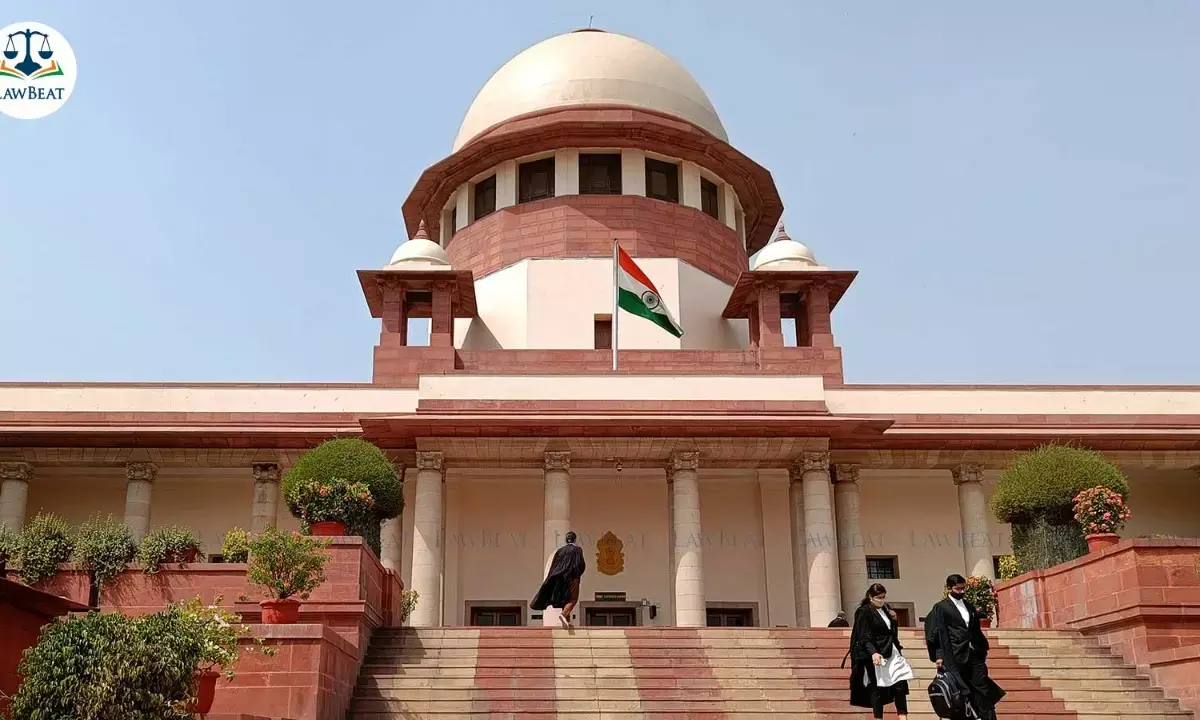Mere Involvement In Demonstration After Communal Flare-Up Not Enough To Invoke Gangster Act: SC

In a significant ruling on the limits of invoking the Uttar Pradesh Gangsters and Anti-Social Activities (Prevention) Act, 1986, the Supreme Court has set aside criminal proceedings against two individuals accused of being part of an “organised gang” involved in a communal protest, holding that the invocation of the stringent law was legally unsustainable and amounted to a misuse of power.
A bench of Justices Vikram Nath and Sandeep Mehta held that the material on record failed to demonstrate any evidence of continuous or organised criminal activity that would justify proceedings under the Gangsters Act. The FIR, it said, did not reflect anything beyond an isolated instance of protest-turned-violence following a provocative social media post, and lacked the requisite elements necessary to establish gang membership under the Act.
“The mere listing of multiple accused persons without demonstrating their organisational roles, command structure, or evidence of prior or continued coordinated criminal activities fails to meet the stringent requirements for establishing gang membership,” the court said.
Background of the Case
The appellants, Lal Mohd and his son, both affiliated with a political party, had been booked under the UP Gangsters Act in relation to a protest that occurred on October 10, 2022. The protest erupted after a man named Rikki Modanwal posted allegedly defamatory remarks against a religious community on social media. In response, several individuals, including the appellants, gathered outside Modanwal’s shop to protest. The situation escalated into violence and acts of vandalism between members of different religious groups, following which multiple FIRs were filed.
Despite the pending trial in one of the FIRs concerning the same incident, a fresh FIR dated April 30, 2023, was registered under the Gangsters Act against the appellants.
The Allahabad High Court later declined to interfere with this second FIR.
Observations by the Top Court
Allowing the appeal, the Supreme Court found “crucial deficiencies and fundamental flaws” in the impugned FIR. It noted that the FIR relied upon to invoke the Gangsters Act did not indicate a pattern of sustained criminal conduct or any indication of the group acting with the objective of disturbing public order or gaining pecuniary or material advantage, key statutory requirements under Section 2(b) of the Act.
“It is a cardinal principle of criminal jurisprudence that extraordinary penal provisions, particularly those that substantially abridge regular procedural safeguards, must be invoked based on evidence that meets a threshold of credibility and substantiality,” the Court observed.
The bench reiterated that the constitutional guarantee of personal liberty assumes even greater significance when the State invokes exceptional criminal legislation like the Gangsters Act. It warned that the power conferred under such laws cannot be used as a tool of harassment or intimidation, especially when political motivations may be at play.
“The materials relied upon must establish a reasonable nexus between the accused and the alleged criminal activity, demonstrating actual probability of involvement rather than mere theoretical possibility,” the court held.
“The whole incident appears to have been triggered by an incendiary social media post tending to defile the religious sentiments of the appellants and others, rather than by calculated gang objectives of securing material advantages or establishing territorial control", the Court further added.
Misuse of the Gangsters Act
The Court found that the “gang chart” used to justify the invocation of the Act appeared to be a post-facto construct aimed at recasting an already-investigated communal clash into a case of organised crime. It stressed that the FIR was silent on any evidence of structured planning or hierarchical organisation among the accused.
“The afterthought application of the UP Gangsters Act in the present case, in absence of any subsequent criminal conduct of the appellant, bears the hallmark of colourable exercise of power for purposes extraneous to the Act’s legitimate objectives.”
The court further said that even under the 2021 Rules framed under the Act, which mandate rigorous assessment of criminal antecedents and the gravity of underlying offences, the case against the appellants would not hold.
Noting that initiating a fresh prosecution under the Gangsters Act, while an earlier FIR involving the same facts was still pending trial, amounted to an abuse of process, the Court set aside the FIR dated April 30, 2023, and quashed the Allahabad High Court’s order dated May 3, 2023.
Case Title: Lal Mohd & Anr. v. State of Uttar Pradesh & Ors.
